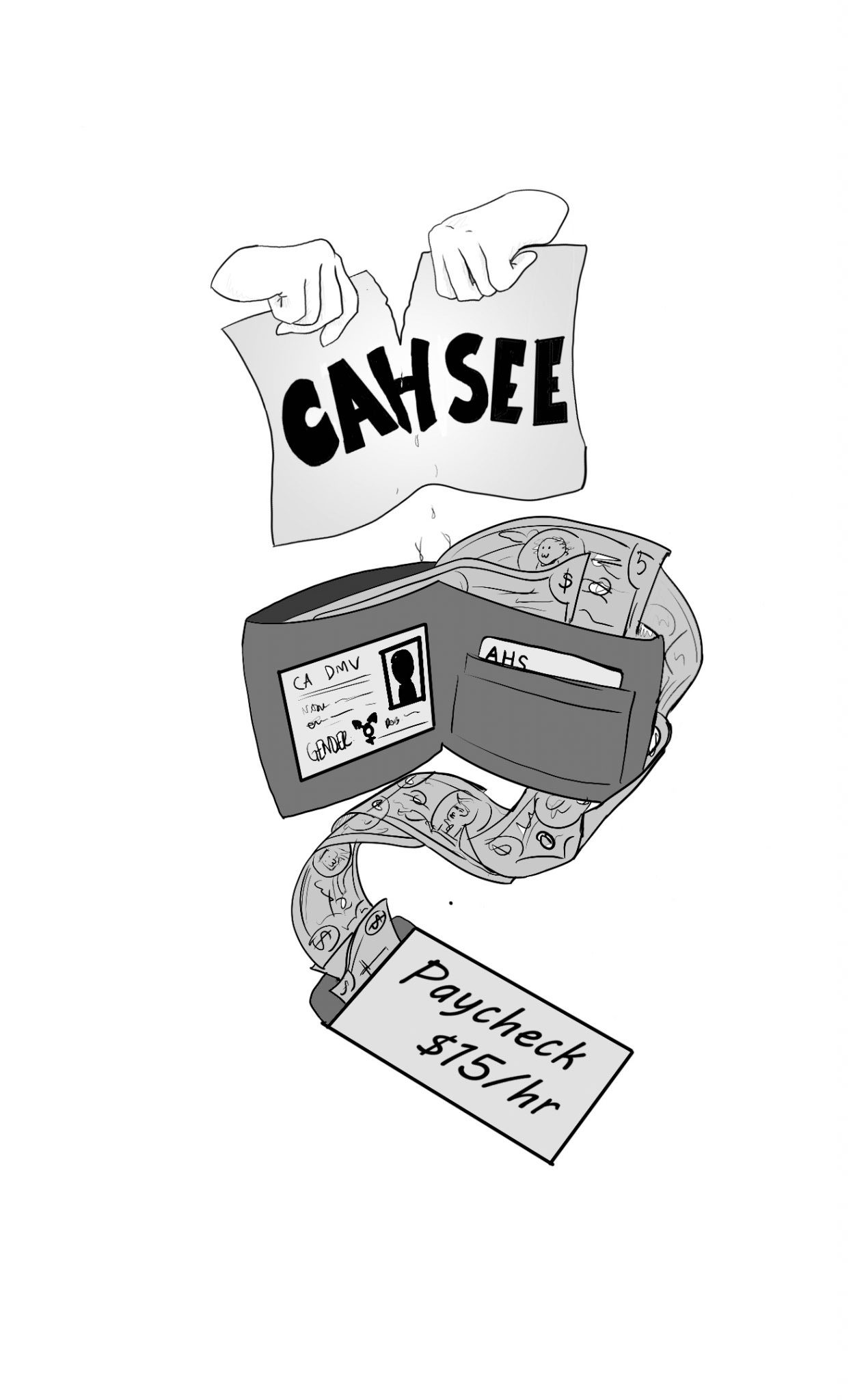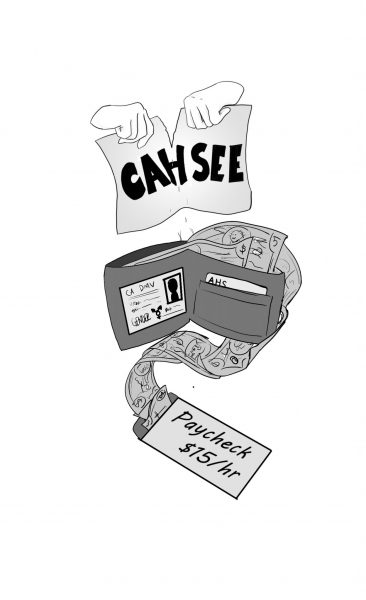

From addressing gender discrimination, to changing hiring practices, to lowering minimum wage and more, numerous California laws have been put into action at the start of the new year. Check them out below.
Updated IDs for all genders
Updated identification documents will be easier to acquire for transgender people, and they now can get these documents without proof of treatment or surgery. Additionally, people can now state themselves as “non-binary” on driver’s licenses.
“I think it’s a really good step forward within the community and with everyone else in the world getting more comfortable with, you know, gender identities and more comfortable with the idea that there’s not a black and white — it’s a rainbow,” said junior and GSA president Sofia Veizades.
Easing the cost of college tuition
Many are pushing to increase the availability of financial aid for college, or even get completely rid of college tuition. While this goal, particularly sought after by Democrats, is far down the line, Assembly Bill 19 in California has begun the process. This bill makes it so that students registering full-time in a California community college have their fees waived their first year. However, this is just a bill, and not yet a law, so California students will have to wait and see if this will be passed into law.
“I feel like this is a big thing that will benefit a lot of students going to college,” said sophomore Preston Schoenherr. “But you know too much of a good thing can also become a bad thing, so I think it’s important that tuition is still a thing, but make it that so that it doesn’t like cripple people’s finances for the rest of us.”
Increased minimum wage
Minimum wage is increasing by 50 cents this year, and will continue to increase until 2023, when all California workers will be making at least $15 per hour.
While the change is bringing a gradual increase in pay for those working minimum wage jobs, drama and tech theater teacher Shane Smuin believes more needs to be done.
“$15 is not enough,” he said “Make it $25 nationally, with a 2.5 percent increase every year for cost of living.”
CAHSEE no longer a requiremen
The California High School Exit Exam, colloquially known as the CAHSEE, was a combined English and math test that high school students needed to pass in order to graduate, but is being removed because thousands of students failed and were unable to graduate.
According to Stanford University’s Institute for Research on Education Policy & Practice, “Graduation rates declined by 15 to 19 percentage points for low achieving black, Hispanic and Asian students when the exit exam was implemented, and declined only one percentage point … for similar white students.”
Additionally, it took time out of students’ busy schedules.
“I feel like [the CAHSEE] brings an unneeded stress on students,” Veizades said. “Especially with all their AP classes, finals, final projects and everything, it’s one thing that [students] don’t have to worry about anymore.”
New hiring practices
A new law passed prohibits employers from determining what to pay prospective employees based on their previous job’s salary.
A second chance for ex-convicts
As of 2018, former convicts do not have to disclose that they have been incarcerated. Employers can still perform background checks, but ex-convicts no longer have to share their past with them.
“Being convicted is a really big setback when it comes to everything,” Schoenherr said. “I feel like this is going to help a lot of people who are actually rehabilitated and actually want to go back into the workforce and be law- abiding citizens and all that.”
Smuin shared another perspective on the law.
“Everyone deserves a second chance, third chance and maybe even a fourth chance,” he said.
